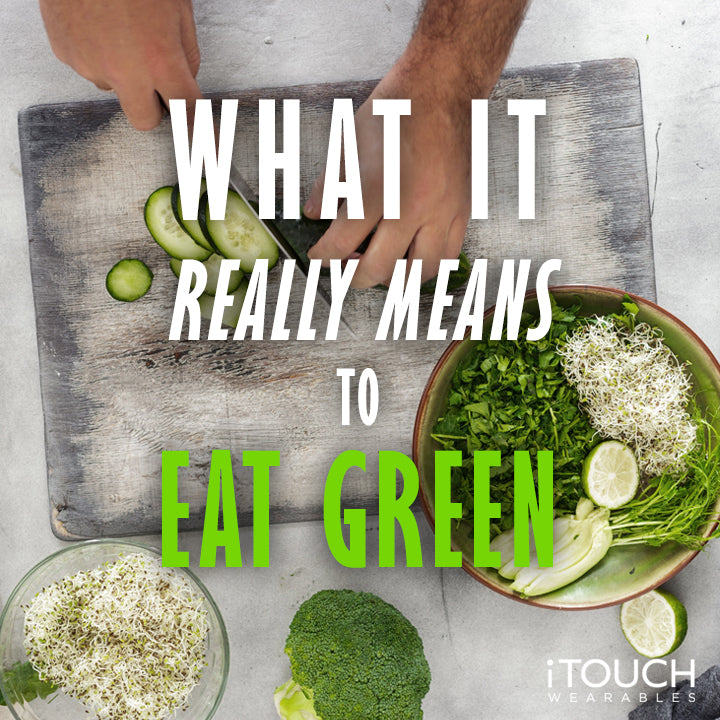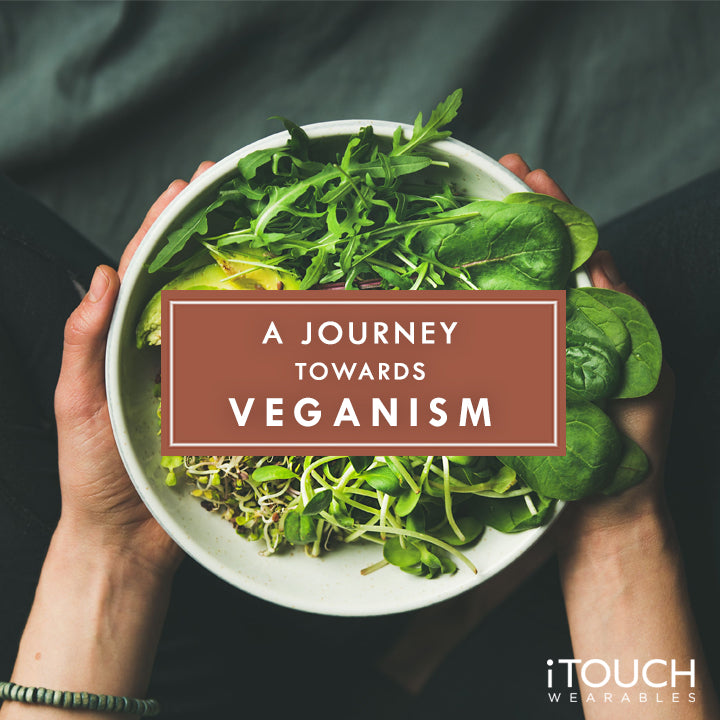
What It Really Means To Eat Green
What does it mean to eat green? We are here to discuss just that! And no, we do not mean consuming celery juices and kale and other leafy greens for every meal - we mean taking a sustainable approach to the food you consume and the everyday practice of placing food on our table. In taking efforts to be more sustainable, people often have taking solutions into their own hands: replacing paper bags with reusable canvas totes, recycling cans and bottles when done, or even downsizing your closet and room by donating old clothing, donating old books and other goods, or even selling or donating some of your old furniture from your childhood. While those are all sizable feats that are surely taking an effort in decreasing our carbon footprint, there are still matters that go into how we can produce a more eco-friendly and sustainable lifestyle. As we said, it can start on your plate and with the food you eat. This is our guide on what it really means to eat green:
Green Eating Means Eating A Predominantly Plant-Based Diet

For most people, their diets consist of mostly consuming animal-based products such as meat, cheeses, milks, and more. But within recent studies released by the Food and Agricultural Organization of the United Kingdom, 36% of usable land within the world is used in raising livestock for farming purposes, while 33% of usable land is used for livestock feed production. 7% of all greenhouse gas emissions come from these practices, due to enteric fermentation and manure. 90% of all cattle also levels in third-world countries with nearly 20% of cattle being on the brink of extinction. This is important because due to the demand of animal based products needed to fulfill supply and with rising incomes in the developing world, demand for animal products will continue to surge; 74% for meat products, 58% for dairy products and 500% for eggs according to these studies. Meeting increasing demand is a major sustainability challenge that can essentially cause huge issues for us globally and ecologically.
In consuming a mostly plant-based diet consisting of vegetables, fruits, nuts and legumes, whole grains, and seeds is just one way we can drastically reduce the amount of greenhouse gas emission being caused due to the animal product production industry. We will not only be reducing or carbon footprint, but aiding in decreasing the dependence of fossil fuels. While you do not need to entirely give up meat and switch to a vegan or vegetarian diet to promote sustainability, you can easily give back to the environment but shifting the focus in making meat or animal products the side or accompaniment to your dish. You can also try substituting meat as your main protein with legumes, nuts, or protein-packed vegetables at least three-to-four times a week instead of having meat everyday.
Green Eating Can Mean Choosing Ethically Raised Meat, Fish, Chicken, and Eggs

If you do choose to eat meat and animal products, consider thinking about where they were raised and how they were sourced for the consumer. Where they treated properly and responsibly? Or were they packed into cages and forced to feed? It may be difficult or even silly to picture or thinking about, but it can make a huge difference in the global footprint of our society.
Responsible and ethically-sourced food products, especially when it comes to meat and other animal products can sometimes be hard to decipher or even hard to ensure it isn't savvy marketing or advertising. You may see, for example, that meat is label: "grass-fed, ethically raised, organic." While it may sound convincing, there are different criteria that different countries need to meet to actually prove that these labels are true. Look for USDA certified labels on the packaging, or if you can, try to find locally raised meat or animal products such as eggs or cheese and try to source from cruelty-free farmers who take pride and care in rising their livestock.
Eating Green Also Involves Eating Organic Fruits and Vegetables

While there is much more of an importance in how meat and animal products are sourced, it is also strategic in knowing how our vegetables and fruits go from the seed in which to actually grow these crops to the meal on our plates. While eating green to you might actually mean incorporating more greens and fruits into your diet, it is essential in knowing what goes into producing these crops.
Have you ever thought about how pesticides are effecting our environment? Or have you thought about how even how the crops are being stored, shipped, and then how long it takes them to finally reach the supermarket? You probably haven't, but all of these questions raise important issues in trying to create a more sustainable lifestyle when it comes to choosing the right products.
In wanting to be more green in selecting our produce or other foods, consider the following:
- Choosing Organic - When it comes to our fruits and vegetables, consider buying organic crops that are free from insecticides, pesticides, and other harsh chemicals or preservatives to make those fruits waxy and shiny.
- Choose Fair-Trade - When it comes to buying products like tea, coffee, or chocolate, or even bananas, try buying fair trade. It ensures that these industries are being exploited by the consumer and market.
- Choose Locally Sourced Foods - In choosing locally sourced foods, you are not only supporting local small business but are giving back to your environment!
While there isn't the perfected way of eating green and maintaining a sustainable practice when it comes to the food you eat, taking these steps or even one or two of these tips can surely make a difference within our impact on the environment.
Share with us your favorite tips on how to eat green by tagging us on Instagram @itouchwearables and Facebook @itouchwearables. Also, be sure to check out our new articles published daily!


